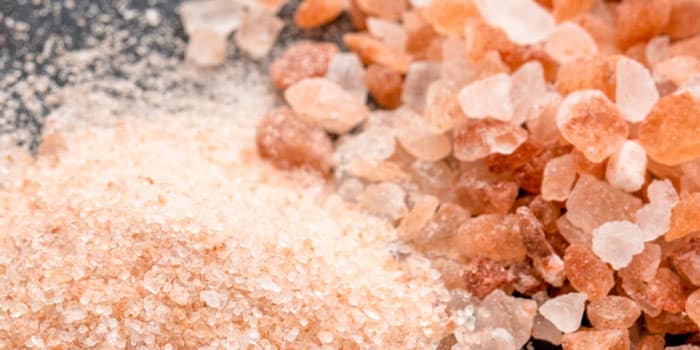What is Intermittent Fasting?
Intermittent fasting (IF) is a normal way of life where you have periods of fasting followed by periods of feasting (called a “window”).
Simple! No counting calories or keeping track of macros.
You eat, and then you don’t eat. Then repeat.
Intermittent Fasting is based on the idea that what you eat is not as important as when you eat.
What are common IF protocols?
There are many different Intermittent Fasting schedules. Here are some of the more popular ones:
16/8
A 16 hour fast followed by an 8 hour eating window. Many people start out with 16/8
19/5 or 20/4
Same concept as 16/8, but pushing the fasting hours up more
OMAD
Stands for One Meal a Day. You eat one meal, then fast until your meal the next day
ADF
This stands for Alternate Day Fasts. You’ll eat one day, fast from the time of your last meal through the next day and night, then eat again the following day
Rolling 48’s (or rolling 72’s)
Many people fast for 48 hours, follow that with a day of normal eating, then go right back into another 48 hour fast. The nice thing about rolling 48’s or rolling 72’s is that you regularly hit the sweet spot for autophagy
One of the best things about Intermittent Fasting is that it is flexible. You don’t have to stick to any one schedule.
You can and should mix things up to suit your lifestyle. Experiment and see what works best for you.
What are the health benefits of IF?
Besides being an amazing weight loss tool, Intermittent Fasting offers many health benefits.
Here’s some that are commonly reported:
- Prevention and even reversal of metabolic diseases such as diabetes
- Lower risks of heart disease
- Better blood sugar levels
- Lower blood pressure
- Increased insulin sensitivity
- Better gut health
- Mental clarity
- Improved quality of sleep
- Appetite control
Is Intermittent Fasting better than Extended Fasting?
That depends on what you think of as “better.”
Let’s ask it this way: Is intermittent fasting better for you?
Because it is a very individual thing.
For some people, the idea of going long periods of time without food is not doable. Still others find it easier once they start to just keep going.
For those who are severely obese or have severe health conditions, extended fasting might offer quicker results.
All that being said, a consistent Intermittent Fasting practice will get you the same benefits as Extended Fasting. It will just take a little longer.
How quickly can I lose weight on Intermittent Fasting?
That depends on a few things:
- How consistent you are
- The kinds of foods you eat during your refeed and how much
- How many hours of fasting you get in a day
- Your current weight
- Your current metabolic health
But generally speaking, once you get into fat burning, the “normal” fat loss is around half a pound a day.
That might not sound like much, but a steady weight loss is easier to maintain.
For those who have a lot of weight to lose, it often comes off faster.
Men also tend to lose quicker (so not fair, ladies).
When is the best time of day for a fasting window?
The best time of day is the time that works best for you and your lifestyle.
Fasting is flexible, it’s not set in stone. You should always try to schedule your window around your life.
One thing to keep in mind, though: eating in the evenings is usually harder to burn off.
Try to have your window closed no later than three or four hours before your normal bedtime.
Do I have to do keto with Intermittent Fasting?
You don’t have to.
Again, Intermittent Fasting is based more on when you eat than what you eat.
But choosing a keto lifestyle can get you back into fat burning quicker because you don’t have to burn through the glucose from a high carb meal.
A good rule of thumb is, the shorter your fasts, the more strict you need to be with carbs and sugars.
No matter how you choose to eat, aim for nutrition and avoid junk food and highly processed foods.
Do you need supplements for IF?
We do recommend daily electrolytes for IF.
Many people don’t get enough electrolytes in their current diet. When you lose fat, you lose water, and with it electrolytes. So it’s easy to get too low on them.
However, you won’t need as much as with extended fasting.
If you’re taking our Fasting Salts in powder form, start with one half to one scoop, once or twice a day.
If you’re taking the Fasting Salts capsules, start with two to three caps, once or twice a day during your fasting window.
Always start on the lower end and add more if you need it.
You can also take a multivitamin if you feel you need that.
Intermittent Fasting Can Help You Achieve Your Goals
With consistent Intermittent Fasting, you can reach your weight loss goals and enjoy a healthier life.
Unlike dieting, Intermittent Fasting is a lifestyle that you can maintain on an ongoing basis.
Once you get used to it, it’s much simpler and easier than dieting.
Author: Roo Black

Roo is a fasting coach with over 5 years of experience. She leads the admin team of the Official Fasting for Weight Loss Facebook group – one of the largest fasting communities on social media with over 125,000 members. We highly recommend this group for anyone who is looking for fasting advice or coaching.


